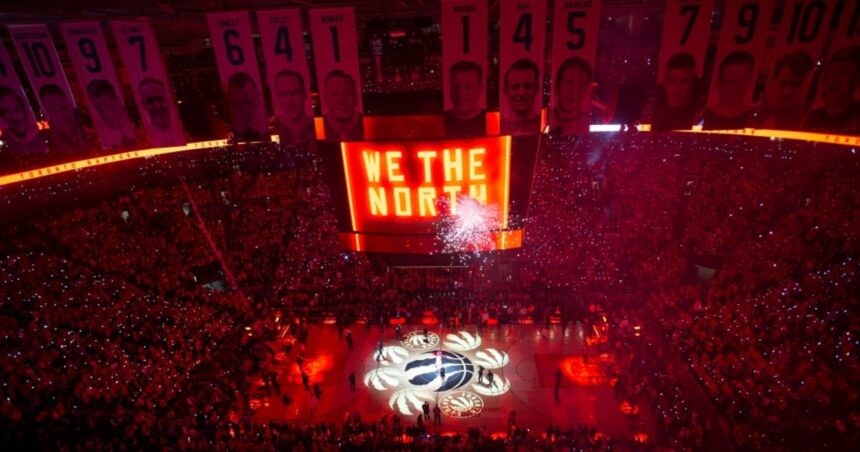In what many are calling the end of an era for Toronto basketball, Maple Leaf Sports & Entertainment (MLSE) officially confirmed today that Masai Ujiri, the transformative president of the Toronto Raptors, is departing the organization after 11 groundbreaking years.
The news sent shockwaves through Toronto’s sports community this morning as MLSE Chairman Larry Tanenbaum addressed media at Scotiabank Arena, characterizing the split as a mutual decision to “go in different directions.”
“Masai’s contributions to this organization and this city cannot be overstated,” Tanenbaum said during the emotional press conference. “He didn’t just build a championship team – he helped build Toronto’s identity as a world-class basketball city.”
For many Torontonians, myself included, the announcement feels deeply personal. Having covered the Raptors’ remarkable transformation under Ujiri’s leadership since 2013, I’ve witnessed firsthand how his vision extended far beyond basketball operations.
The Nigerian-born executive arrived in Toronto with bold promises and delivered on virtually all of them. Most notably, he orchestrated the high-risk trade for Kawhi Leonard that culminated in the franchise’s first NBA championship in 2019 – a moment that united our city in collective celebration like few events in recent memory.
Teresa Resch, MLSE Vice President of Basketball Operations and Player Development, told me the organization is still processing the change. “Masai built a culture here that was about more than winning games. It was about representing Toronto’s diversity and global perspective. That legacy doesn’t disappear with his departure.”
The timing has raised questions across the basketball community. Just two months ago, the Raptors selected Olivier-Maxence Prosper with the 19th overall pick in the NBA Draft, a move Ujiri had personally championed. According to sources close to the organization, disagreements about the team’s rebuild strategy may have contributed to the separation.
“There’s always going to be tension between immediate competitiveness and long-term vision,” explained Sid Seixeiro, Toronto sports analyst. “What made Masai special was his ability to balance both while maintaining the team’s cultural identity.”
Beyond basketball, Ujiri’s humanitarian work through his Giants of Africa foundation connected Toronto to the global basketball community. His passionate advocacy following the 2019 championship celebration incident – where he was involved in an altercation with a sheriff’s deputy – sparked important conversations about racial profiling and systemic barriers.
Local business owner Dwayne Williams, whose sports apparel shop near Jurassic Park saw record sales during the championship run, says Ujiri’s impact extended to Toronto’s economy. “When the team was winning, the whole city was winning.“
According to MLSE, the search for Ujiri’s successor will begin immediately, with current General Manager Bobby Webster expected to oversee basketball operations in the interim. Industry insiders suggest this transition period will be crucial for maintaining organizational stability ahead of training camp.
For Toronto basketball fans, the departure marks the end of a remarkable chapter that saw the Raptors transform from NBA afterthought to respected global brand. The team’s “We The North” identity, cultivated under Ujiri’s guidance, has become ingrained in Toronto’s cultural fabric.
“I’ve covered Toronto sports for over a decade, and I’ve never seen an executive connect with this city the way Masai did,” I told my colleague this morning as we processed the news. “He understood Toronto’s multicultural identity and leveraged it as a strength rather than seeing it as a challenge for attracting talent.”
As for what’s next, sources indicate Ujiri will likely have numerous opportunities across the basketball world, potentially including front office positions with other NBA franchises or leadership roles in global basketball development.
For the Raptors, the immediate focus shifts to establishing a new organizational direction while preserving the culture that made them successful. The team will need to navigate significant decisions regarding core players like Scottie Barnes and Pascal Siakam.
Whatever comes next, Ujiri’s legacy in Toronto is secure. From “F*** Brooklyn” to “The Shot” against Philadelphia to the championship parade down University Avenue – his tenure provided moments that are now permanently woven into our city’s sports history.
As Tanenbaum aptly put it today: “Some executives build teams. Masai built a movement.“







